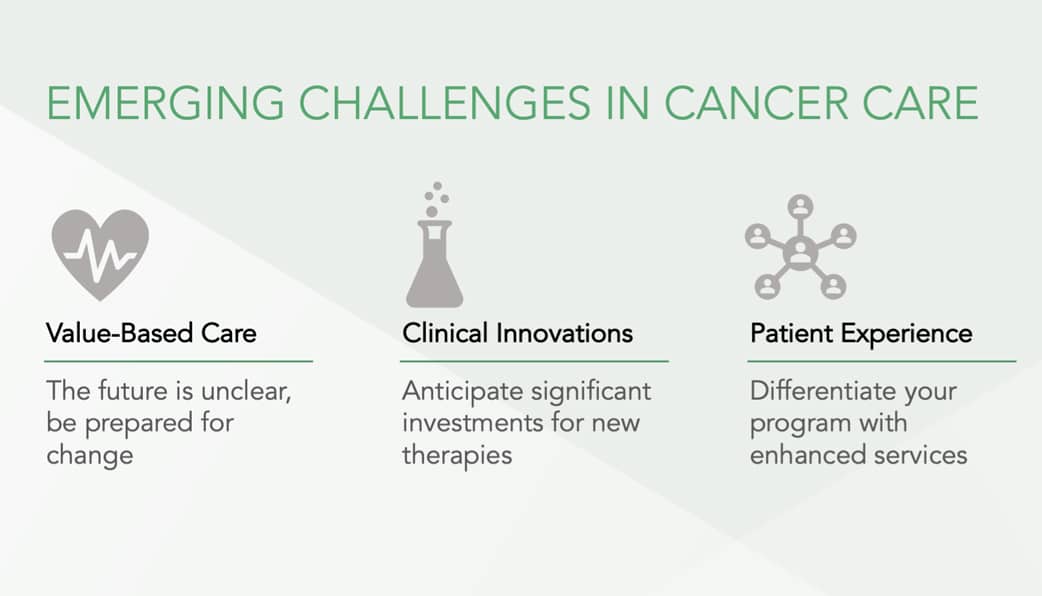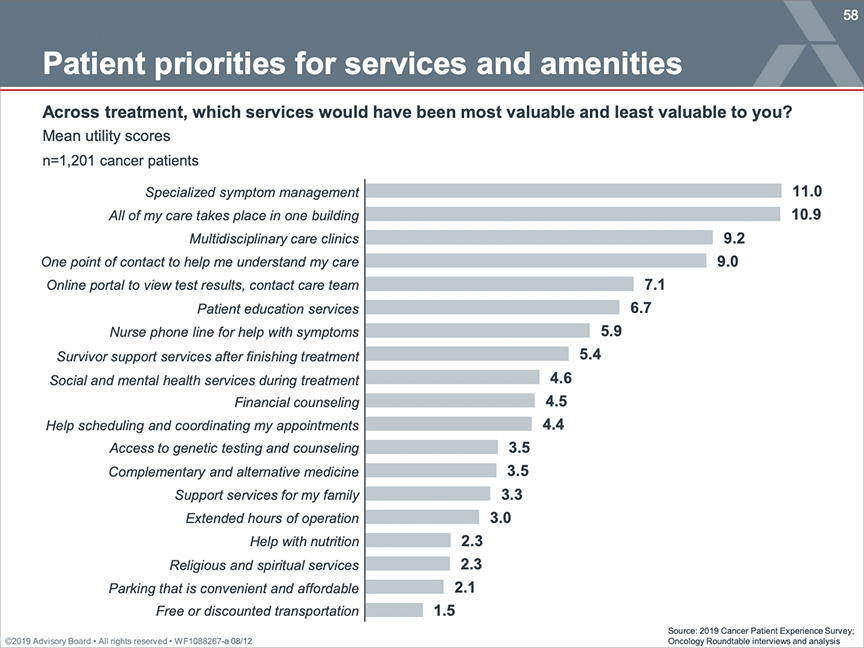During a session at the recent Advisory Board Oncology Roundtable meeting, Stuart Clark, Managing Director, shared three emerging challenges for cancer care providers: value-based care, clinical innovations, and patient experience. Those likely don’t come as a surprise, but there were some interesting insights provided during the talk, including that the most under appreciated challenge is the rising expectations of patients. To continue to thrive in today’s landscape it’s important to carefully consider all of these factors and identify strategies to succeed.

Emerging Challenge #1: Value-Based Care
Even though this topic has been discussed for a long time and several different models have been explored, the Advisory Board pointed out that we probably have more questions than answers at this point. Value-based care models require a lot of work and investment, and yet have had inconclusive results. One-third of participants in the Oncology Care Model (OCM) don’t believe it’s improving the quality of care, and the results so far haven’t been great. While the access to data resulting from the OCM is a huge asset to participating practices, the looming reality of shared risk may scare many out of the program. Despite these challenges, value-based care isn’t going anywhere. CMS is working on revising the model and leaders in oncology care – COA, ASCO and others – are also proposing improved models.
Emerging Challenge #2: Clinical Innovations
The next challenge is the rapid pace of clinical innovations – both the way cancer is detected as well as treated. New treatments and tests, while exciting, are complex, expensive, and difficult to keep up with. Using these new tools would require large investments to support them – adding a molecular expert and new lab facilities, for instance. In addition to the infrastructure, our current reimbursement models also add risk since they are not keeping up with all of this new innovation.
Emerging Challenge #3: Patient Experience
The third challenge covered in the session was the growing demands of patients. As patients continue to become more discerning about their care and as they are forced to take on more of the financial burden, their expectations for their patient experience are going up too. Mr. Clark noted that 11% of patients change providers during treatment – often due to dissatisfaction with the customer service they receive. Patients are also coming to expect added support and services during their entire experience with a cancer program – including before they even walk through the door. Citing a recent survey (which you can read more about here), Mr. Clark shared the services most valued by patients:

Providing a level of high quality care including specialized symptom management, access to a single point of contact to help them throughout treatment, personalized education, and a lengthy list of other services is expensive, but essential. Mr. Clark emphasized the importance of differentiating yourself in the market to stand out.
Conclusion
Mr. Clark cautioned the audience that the future of cancer care is unclear, so it is important to make sure you’re investing in some key areas:
- Standardizing care
- Improving patient access to high quality care
- Helping patients avoid the emergency department
- Leveraging data to enable continuous improvement
Navigating Cancer’s Patient Relationship Management platform is built to address those four key areas. It includes oncology-specific content, symptom management pathways, tools to automate tasks (such as the digital delivery of diagnosis and treatment related information), detailed data that can be used to reduce resource use and improve care, and much more.Our PRM solution may be the missing element to help your cancer program stand out and become adaptable for an uncertain future. Contact us today for a demo!
